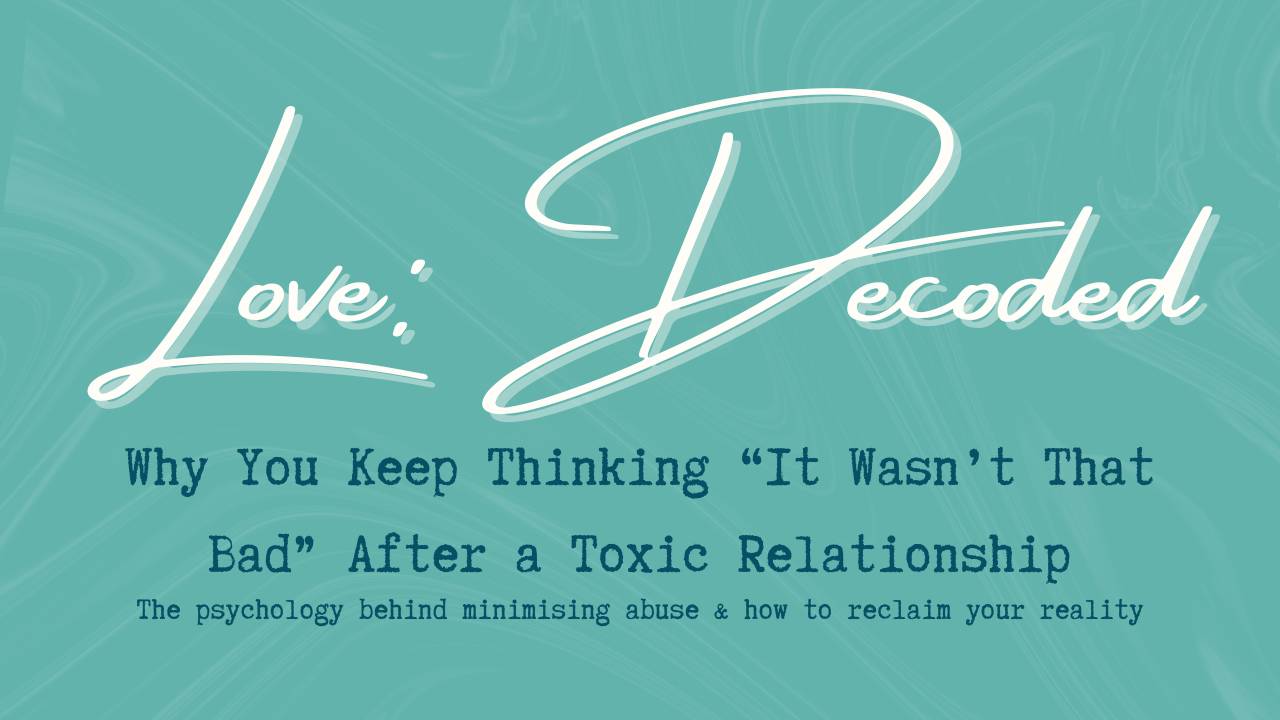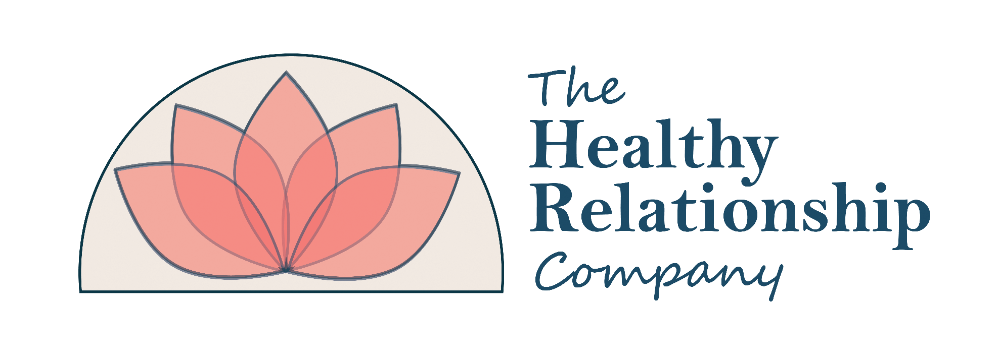
The “It Wasn’t That Bad” Trap - And Why It’s Hard to See the Truth
Aug 11, 2025You replay the arguments in your head.
You remember the moments they were kind.
And before you know it, the thought slips in:
“Maybe it wasn’t that bad.”
If you’ve ever found yourself downplaying a relationship’s damage - even one that left you drained, anxious, or questioning yourself - you’re not alone. This isn’t weakness, and it’s not you “making excuses.”
It’s psychology. And it’s sneaky.
Let’s decode why it happens, and how to step out of the fog.
Why We Minimise the Past
1. Cognitive Dissonance
Our brains hate holding two conflicting truths.
-
Truth 1: This relationship hurt me.
-
Truth 2: I loved/cared for this person.
To reduce the tension, your mind may smooth out the rough edges of the bad parts - because accepting that someone you loved caused harm feels almost unbearable.
2. Intermittent Reinforcement
Abusive or unhealthy relationships often follow a “good-bad-good” pattern.
Those “good” moments become anchors in your memory, and your brain - craving relief - clings to them as proof that things “weren’t all bad.”
Psychologically, intermittent reinforcement makes experiences more addictive and harder to walk away from than consistent kindness ever could.
3. Trauma Bonding
When the person causing harm is also the one providing comfort, your brain creates a powerful survival attachment.
This bond can make it feel wrong or even disloyal to focus only on the negative, leading you to “balance” your memories with the positives.
4. Social Conditioning
From films to family advice, we’re often taught to “see the good in people” or “not dwell on the past.”
While optimism can be healthy, in this context it can be a form of self-silencing - making it harder to fully acknowledge harm.
The Cost of “It Wasn’t That Bad”
Minimising the harm can:
-
Delay your healing.
-
Keep you vulnerable to being pulled back in.
-
Prevent you from trusting your own instincts in future relationships.
How to See the Truth More Clearly
1. Write the Unedited Version
In a journal or your Reality Log, describe events exactly as they happened, without softening language or excusing behaviour.
2. Balance with Impact, Not Just Events
Instead of asking “What did they do?”, ask “How did it make me feel - and how often?”
Feelings are harder to dismiss than single incidents.
3. Name the Harm Out Loud
Whether to a therapist, trusted friend, or even yourself in the mirror, speaking the truth can disrupt minimising patterns.
4. Learn the Patterns
When you understand concepts like trauma bonding, intermittent reinforcement, and cognitive dissonance, you see how normal this response is - and how to move beyond it.
The Bottom Line
If you’ve caught yourself thinking “It wasn’t that bad”, it doesn’t mean you’re weak or naïve.
It means you’re human, and your brain is doing its best to protect you from painful truths.
With awareness, compassion, and the right tools, you can hold both truths:
-
There were good moments.
-
And it was still harmful.
And when you can hold that without flinching, real healing begins.
💡 If you’ve caught yourself wondering “Was it really that bad?”, the Mirror Tracker is your daily tool for cutting through the fog.
Over 7 days, you’ll spot the emotional patterns your brain has been taught to ignore - and start trusting your own truth again.
👉 Get The Mirror Tracker here - only £9 for invaluable clarity.
I'd love to hear from you with your thoughts about this blog. Email me at [email protected] with your feedback, experiences and ideas for other blog posts you'd like to see coming your way!
Eve x
Founder, The Healthy Relationship Company
📲 @thehealthyrelationshipcompany
📧 [email protected]
Stay in the loop!
Get psychology-backed relationship tips straight to your inbox.
We hate spam. We will never sell your information, for any reason. By subscribing to The Clarity Drop Newsletter, you also agree to receive occasional updates and marketing. We will only send things that would be genuinely useful to you. Unsubscribe at any time.
